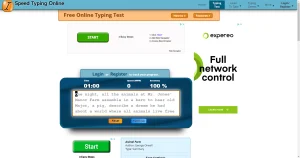Mediation Services


Mediation is an alternative to expensive, time-consuming and emotionally draining litigation. However, the success of mediation depends on parties’ commitment and their willingness to communicate.
A neutral third party, known as a mediator, helps disputing parties communicate effectively and identify solutions to their dispute. A good mediator takes the time to learn about your situation and offers you options for resolving your dispute.
Problem-Solving Skills
Problem-solving skills involve identifying issues, resolving conflict and reaching a workable solution. They also require an ability to understand and empathise with others’ perspectives. Mediators use problem-solving skills to help parties find solutions that are acceptable to everyone involved.
Students who attend mediation sessions learn how to deal with difficult situations and improve their conflict resolution skills. They learn that resolving problems isn’t a one-time activity and that patience is necessary to overcome obstacles.
Mediation services provide rural communities with access to resources and help them resolve disputes respectfully and cost-effectively. They also help foster collaboration and understanding between communities. This helps reduce tensions and prevent disputes from escalating.
Communication Skills
Mediators use communication skills to help participants understand each other. Empathy and active listening help mediators connect with participants and encourage them to be open about their feelings. They also use effective questioning strategies to help parties clarify their positions and identify potential barriers to progress.
Mediator communications skills also include the ability to identify emotional responses and address them as appropriate. This may involve acknowledging the impact of certain statements or rephrasing language to avoid triggering negative reactions.
Mediators also use their communication skills to explain mediation procedures and establish a supportive, empathetic environment in which parties can discuss sensitive topics. Finally, they must be able to persuade uncooperative parties to consider alternative perspectives and reach fair compromises.
Negotiation Skills
Negotiation skills are essential for mediation services because they allow mediators to reach compromises with disputing parties. These skills help mediators determine what is a fair resolution for both parties and explain to them why it’s acceptable.
During mediation, it’s important to build rapport with the parties and encourage them to share information openly. This can help reduce the emotional aspects of a dispute and lead to more productive negotiations.
Understanding the different negotiation strategies and techniques can help you become a better negotiator and improve your career outcomes. Get a free special report on how to negotiate like a diplomat and create win-win situations that benefit all involved, from the Program on Negotiation at Harvard Law School.
Flexibility
The structure of mediation is more flexible than court proceedings. This allows mediators to work with each situation to come up with a solution that will best serve both parties.
Mediation is a process that aims to preserve relationships – personal and professional. It is also more cost and time efficient than litigation.
It offers greater flexibility and creativity in the crafting of solutions. It can also result in higher compliance with mediated settlements than is seen with court-imposed settlements. It is also less stressful. It is confidential and takes place in a comfortable setting that is typically less formal than a hearing or trial.
Neutrality
Neutrality is a key characteristic for mediators to have, as it ensures that the outcome of the mediation process is fair and consensual. However, this quality can be difficult to define and monitor as the majority of mediation processes are private. This makes it impossible for external investigations to determine whether a mediator has acted below standard.
Ideally, neutrality should encompass a mediator’s ability to set aside his or her personal opinions, beliefs and agendas during the process. Despite this, it is recognised that some intervention by mediators is necessary and can be justified in certain circumstances. This includes where information is not being provided to disputing parties or when an imbalance of power has been identified.
Independence
Mediators are independent people who have been trained and accredited to mediate disputes. They are bound by a code of ethics and must withdraw from mediation if they think that their participation might conflict with a conflict of interest.
Family mediators help parents who are going through a custody dispute to work out child-related issues in their own way. They can reduce the stress, anxiety and expense of a trial, while ensuring that children’s best interests are served.
Some dispute resolution programs provide free mediation services to low-income parties who have been ordered by a Court to go to mediation. Individual mediators charge their market rates.





